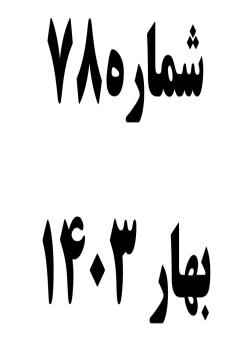Designing a model for enhancing the online teaching-learning process in higher education based on a phenomenological study
Subject Areas : Educational Scienceleila kamali 1 , Mitra Kamyabi 2 , zahra zeinaddini 3 , Alireza manzari 4
1 - 1- دانشجوی دکتری روانشناسی تربیتی، گروه روانشناسی تربیتی، واحد کرمان، دانشگاه آزاد اسلامی، کرمان، ایران.
2 - استادیار، گروه روانشناسی تربیتی، دانشگاه آزاد اسلامی، واحد کرمان، کرمان، ایران
3 - 2- استادیار، گروه روانشناسی تربیتی، دانشگاه آزاد اسلامی، واحد کرمان، کرمان، ایران
4 - استادیار دانشگاه آزاد اسلامی، کرمان، ایران
Keywords: کلیدواژه: یاددهی - یادگیری آنلاین, غنی سازی, طراحی الگو, تجربه زیسته , پدیدار شناسی,
Abstract :
The present research aimed to design a model for enhancing the online teaching-learning process based on theoretical studies and the lived experience of professionals and practitioners of the online teaching and learning process. The research method was mixed (first qualitative and then quantitative). In the first step, using meta-synthesis, the factors for the enhancement of the online teaching-learning process were extracted from theoretical and research backgrounds with qualitative methods using MAXQDA 2018 software. In the second step, relevant factors were obtained using the phenomenological method of Van Manen (2016) from the lived experiences of professionals and practitioners in the virtual learning process, and in the third step, the initial model was compiled using the obtained factors. Before editing the final model, a 59-item questionnaire containing items from the qualitative phase was developed and distributed among 25 professionals and practitioners in the virtual learning process of higher education. The content validity ratio (CVR) of model items was calculated, and after omitting some items, 48 items remained. To validate the final model, a 48-item questionnaire was also distributed among 25 samples, and the validity of the items was confirmed with mean and standard deviation and t-test, and the final model for enhancing the online teaching-learning process was formulated based on four themes: the capabilities of the educational system, teacher competency, learner competency, and family structure.


